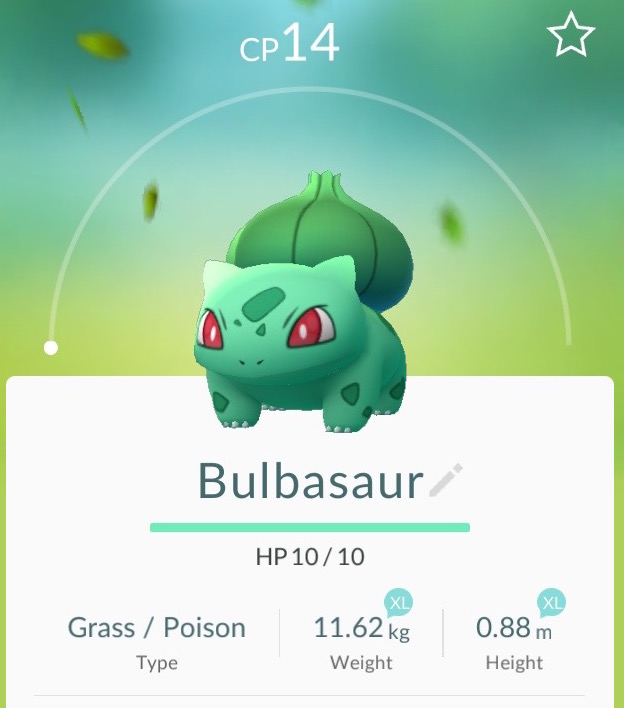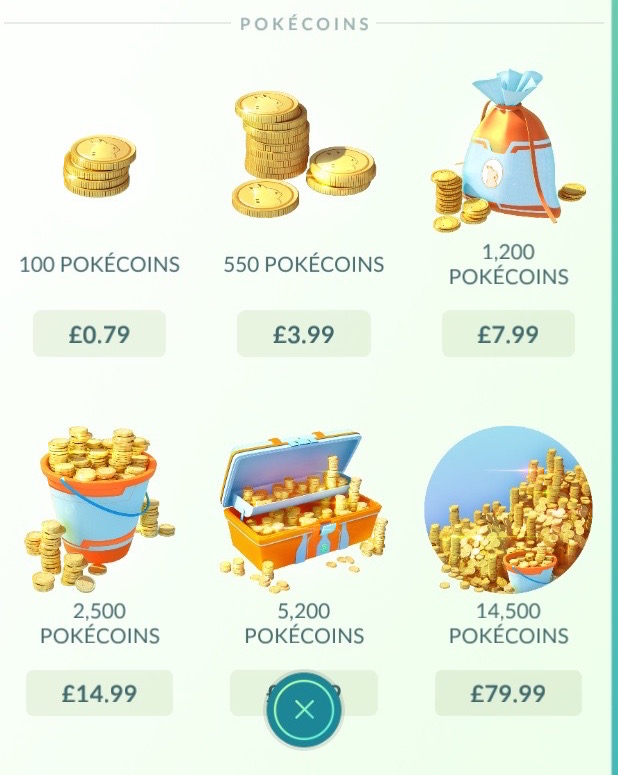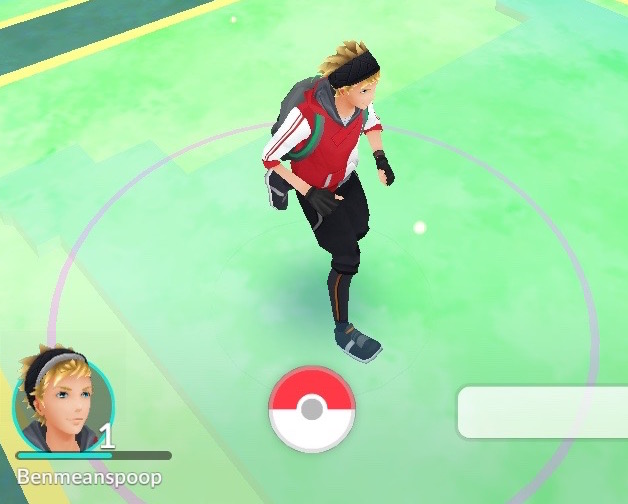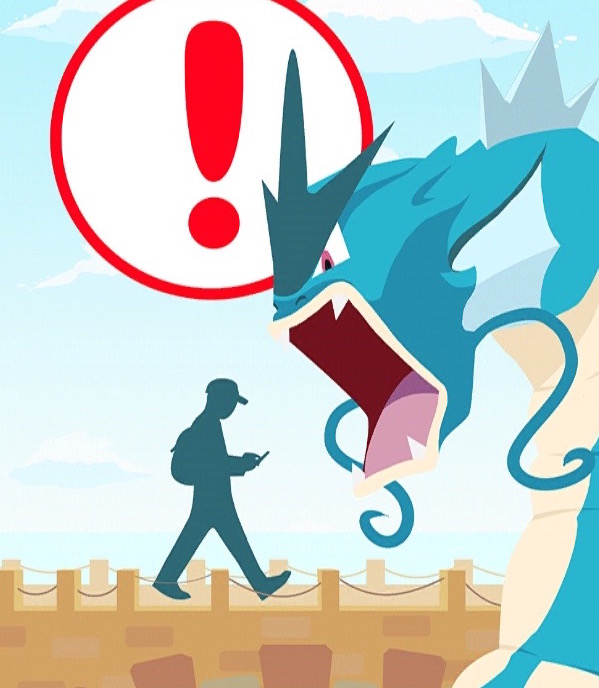Pokémon Go is really grabbing the world by the Poké Balls right now. Everyone’s talking about Pokémon Go’s impact on businesses, health, gaming, and social interaction. But what can us writers learn from Pokémon Go?
1. Don’t follow trends. Set them.
Isn’t it ironic that the first piece of advice is about not following trends?
Everybody and their Pikachu is currently talking about Pokémon Go. Aren’t I just following a trend by writing about it?
Yes, you caught me. That’s kind of true. And also kind of not true.
I’ve seen tons of articles discussing augmented reality. Tons of articles discussing nitwits who got into accidents because of Pokémon Go. Tons of articles talking about the business side of things. But I haven’t seen anyone extrapolate ten lessons that writers can learn from Pokémon Go.
The reason for Pokémon Go’s staggering success is because Niantic (the developer) saw where the puck was heading to and skated ahead of everyone else.
They took something that was on the horizon but not yet present in the mainstream market (augmented reality) and launched with masterful scale and quality.
Other companies were busy trying to make another Uber or Yelp or Snapchat. Niantic said, ‘Pfft.. yeah, screw that.’
There are always going to be trends. But do you want to be the one to set them or chase them?
Some easy examples of trends in the publishing world:
- Vampires – The Pielight Saga
- Wizards – Gary Globetrotter and the Potato-size Kidney Stone
- Sexy billionaires with a penchant for spanking and emotional abuse – Sixty-Nine Shades of Off-White
If you are going to attach yourself to a trend, remember that story, character, and execution trumps everything.
It’s not enough to ride on the shirttails of a keyword and hope that the readers will be too stupid to see your cheap imitation for what it is.
If you’re going to try and cash in on a trend, you better tell a damn good story and infuse your soul in the work.
And while you’re following where the market is, you should be consistently thinking about where the market’s interest will be in 5, 10, 20 years.
I know. Predicting trends is hard (some would say impossible). But I actually think many people have predicted trends. You have probably had many “great ideas” that you’ve quickly forgotten about and then seen explode a year later (adult colouring books was one for me). The issue isn’t the prediction part. It’s the execution part.
After Pokémon Go, you can bet your bottom bulbasaur that there are gonna be a ton of augmented reality apps flooding the market. And, if they’re good, the market will eat them up. That’s fine. Pokémon Go is a glimpse into the future of gaming.
But you can also be assured of one thing. While the other game developers are making plays to introduce their own AR apps, Niantic are going to be ten steps ahead of all the rest.
In the meantime, Niantic have secured their place in this little slice of history because they saw where the market was headed and they executed well before everyone else.
2. You’ll never go broke appealing to the inner child of adults
Here are some stats I picked up from Vox:
- 58.8% of Pokémon Go downloads are from 18-24-year-olds
- 33.2% of Pokémon Go downloads are from 25-24-year olds
Obviously the stats are a little skewed. For one thing, nostalgia plays a huge role in who the downloading demographic is. The target demographic is my generation. The generation that got up early to watch the Pokémon cartoons in the morning. The generation that collected the Pokémon cards and battled each other on the playground. The generation that bought Pokémon Red, Blue, Yellow, Silver, and Gold even though they’re all the same damn game.
However, we can see this phenomenon with Disney too. We can see it with Harry Potter. We can see it with The Simpsons. Hell, think of any entertainment brand that has endured for years and reaped massive commercial success and you’re gonna see a huge overlap:
These brands appeal to kids and adults by appealing to the kid in all of us.
We can all think of a bunch of adult-only forms of entertainment that have cult-like followings. Breaking Bad and House of Cards are two that immediately spring to mind.
But how many brands can you think of that are aimed solely at adults and have fans that do the following:
- Queue for hours in the middle of the night to get the next instalment
- Dress up as the characters, continuously quote whole lines, and have themed parties
- Have meet-ups that enable people to meet each other based purely on that specific book/film/show
Pokémon has done just that. And though it’s probably gauche to actually put this into words, I think writers should think hard about whether their writing has the capacity to do the same. If it doesn’t, a simple fix might be aiming to please kids and adults on the same and different levels.
Take The Simpsons as an example. I loved that show as a kid. I thought it was a kid’s show and my parents were just being nice by watching it with me. But when I got older, I realised that The Simpsons is filthy. It’s an adult show! But the writers are super smart at making it appeal to both demographics simultaneously.
If you can do the same with your writing, you’ll also have the best fans. You’ll have fans that still retain their childlike sense of wonder. You’ll also have fans that will be your evangelists and sing your praises to everyone they know.
3. Leave gold coins in your narrative
I got this tip from Roy Peter Clark in his highly recommended book:
Clark advises writers to ‘place gold coins along the path’ and ‘reward readers with high points, especially in the middle’. He says:
Think of a gold coin as any bit that rewards the reader. A good start is its own reward, and crafty writers know enough to put something shiny at the end, a final reward, an invitation for readers to return to their work. But what about the territory between beginning and end? With no gold coins for motivation, the reader may drift out of the forest.
So what constitutes a gold coin?
- A small scene or anecdote
- A startling fact
- A telling quote
A big danger that we can fall into as writers is to focus on the destination. We want to get to where the story is going. Sure, it’s important to have momentum, significance, and the promise of a final reward. But how about we slow down, smell the daisies, and scatter some gold coins around the landscape?
Pokémon Go takes this philosophy to the extreme. Who honestly gives a shit about getting to level 20? The fun for most people is discovering new things in unexpected locations. The same is true with manuscripts (at least for me, especially because I ditch books frequently but still enjoy the ride).
Discovering new gems is addictive. Hence the flocks of fanatics following little digital monsters around Central Park. As writers, we should aim to implement that addictive quality into our own writing. After all, aren’t we’re all just rats clamouring for another dose of drip-fed cocaine?
4. You can’t appeal to everyone
There’s nothing more powerful that eliciting a love it or hate it response.
If you don’t have people that hate your work and everything you stand for, you probably aren’t arousing the opposite emotions either. Emotions like love, dedication, and obsession.
We’ve heard a lot of commentary about Pokémon Go since it launched. But little of that commentary is neutral.
We’ve heard people saying that Pokémon Go is…
- Dangerous
- Immature
- A waste of time
- A sign that the current generation is FUBAR
We’ve also heard people saying that Pokémon Go is…
- A hell of a lot of fun
- Making people healthier
- Helping people meet other people in the real world
- A sign of awesome gaming technology to come and a glimpse into the future
Basically, you have a bunch of people who think Pokémon Go is awesome (myself included). Then you have a bunch of people who think Pokémon Go is a pile of poliwag poo.
Think of any literary phenomenon that has rapidly become a huge and long-lasting commercial success. I bet you every single one has a strong love it or hate it response. That’s because if you want people to love your work, you’re gonna have to do drastic things that make others hate your work.
You should have an ideal reader in mind when you write anything. Someone who is going to love your work. Conversely, there will be an unideal reader. Someone that will freaking hate your guts.
My ideal reader for one of my pen names fits this profile:
- Female
- Introverted
- Aged 16-24
- A fan of Disney, magic, fantasy, fairy tales, and also loves (soft) science fiction
My ideal reader for this website is basically me:
- A self-published writer (aspiring or established but in the early stages)
- Mid-to-late-twenties
- A fan of travelling, languages, health, and poop jokes
Interestingly, I do think there would be some convergence between those two. We could get real niche and slam both those ideal readers together. It would cause a drop off in the amount of people who like my work but it would also probably increase the amount of love I get (and hate).
Anyway, the lesson for us here is to take an example from the big dogs and cause divide amongst the masses. That divide is also marketing fire! With both lovers and haters spreading your message.
5. Get people talking in the real world
Typically solitary activities that create communities in the real world see massive success.
This is true for…
- Gaming
- Books
- Shows
- Movies
Gamers typically don’t foray into the outside world as part of their hobby.
The same is true of readers.
However, exceptions come when a certain game or a certain books forces those fans into the world to interact.
What Niantic did is legendary.
I can already see this company being more responsible for improved health levels across the nation than any public service announcement or parental lecture.
As for us writers, another thought that could serve us well is to think how we could possibly get our readers out of the privacy of their bedrooms or cafe nooks and into the outside world. How can we get our readers, through the power of story and character, to interact with each other?
Write something that does that and you will have a winner on your hands.
6. Is your work up-sell worthy?
Pokémon is a massive industry built on its capacity for up-sells and diverse product lines.
Star Wars does this too.
So does Disney.
- Shows
- Cereals
- Onesies
- Keychains
- Online games
- Plush toy animals
- Magazine spin-offs
- Mobile phone covers
The possibilities are endless.
Compelling characters + stories that speak to a primal part of the readership + raving fans + aggressive marketing = cha-ching!
Questions us writers can ask ourselves of our current work-in-progress:
- Are my characters compelling enough to be printed on a beer stein and be widely bought?
- Does my story strike such a deep chord with my target audience that they are desperate to fill their room with related memorabilia?
- Does my work have an ideal reader and do I understand that reader intuitively (thus creating raving fans)?
- Can I successfully market the hell out of this thing?
7. Be a hype master
When it comes to promoting your next work will you….
Just pop it up on Amazon, maybe make a paperback version through CreateSpace and quietly hope that it takes off?
Or will you….
Hype the shit out of your work because you know your readers are gonna love every minute of it? Are you gonna hype it up months before it’s released? Are you gonna get people rabid?
Well, that’s exactly what’s happening with Pokémon Go.
You know that Pokémon Go hasn’t even been released in its home country yet?
Japan doesn’t have it!
It should have had it by now. But the release date keeps moving. The reasons for the delay keep changing. One moment it’s due to hackers, the next it’s due to server speed, just today, right when it’s release was due, it got delayed again due to an email leak.
Some people think that the delay is because Niantic want to make the game as good as possible for the Japanese market. After all, it is their native game and Japanese people are super discerning consumers.
But…. I have an alternative theory…
I think this delay is intentional.
I think this is a method of creating hype.
They are letting Japan see news stories of Pokémon Go from America and they are making them hungry for it. People who weren’t even interested in downloading it have now been bombarded with news items and their curiosity is well and truly aroused.
I think there’s a lesson in there for all of us.
Make your readers hungry.
8. Be newsworthy
If your work is extraordinary, it will naturally get coverage from the major news stations.
Pokémon Go was newsworthy by virtue of being one of the first of its kind in the market.
Fifty Shades of Grey was a marketing phenomenon in part because its release was aligned with the release of the Kindle. Suddenly smut was in again because horny readers could hide what they were reading from their spouses or fellow commuters on the train!
So, how is your work newsworthy?
- Does it coincide with another big launch and compliment it naturally (a.k.a FSOG)?
- Does it say something that causes a rift in the status quo (a.k.a. Donald Trump?)
- Is it the first of its kind (a.k.a Pokémon Go)?
9. Think globally
You never know where your story will take off.
There are writers who slaved away for years but received only a paltry income from their native marketplace. Then, when they had their work translated, they saw a huge success because something about their work spoke to that other culture.
I can’t remember the name of the writer (please remind me if you know) but there was this one guy who suddenly discovered that he was famous in Japan because of his detective fiction but never recognised in America.
Pokémon Go is set to be a huge success across the globe and that should serve as a reminder that now more than ever we’re not limited to our home market place. Our reach has never been greater. So think globally, not locally.
10. Your work must speak to you
I’ve read interviews with the brains at Nintendo and Niantic and do you know what they’re proud of?
Not the money, not the huge market influence, not the fame.
I’m sure they are proud of those things.
But they have a core motivation behind their product.
They’re proud of the way they’re getting kids out of the house. They’re proud of the positive health implications. They’re proud of the positive social implications. In short, they tried to create something that spoke to them first.
As writers, the only way we can hack it at this long and taxing game is to make sure we’re writing about stuff that truly moves us.
What speaks to your soul?
What is your truth?
Write that.



